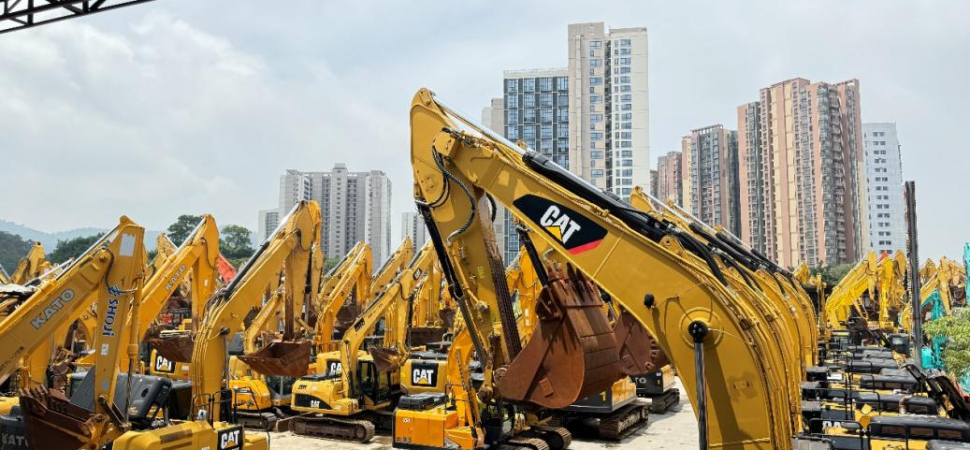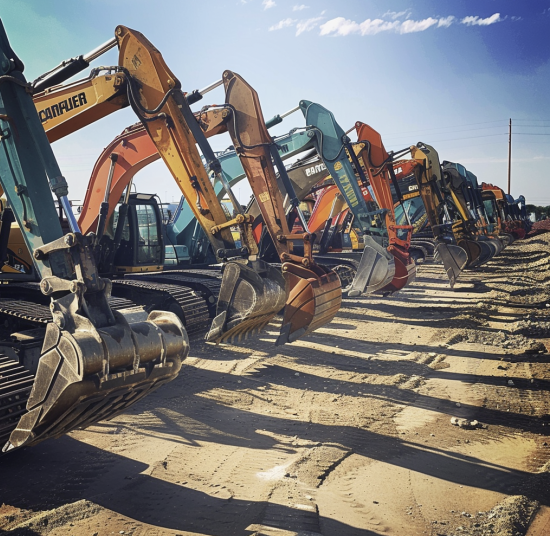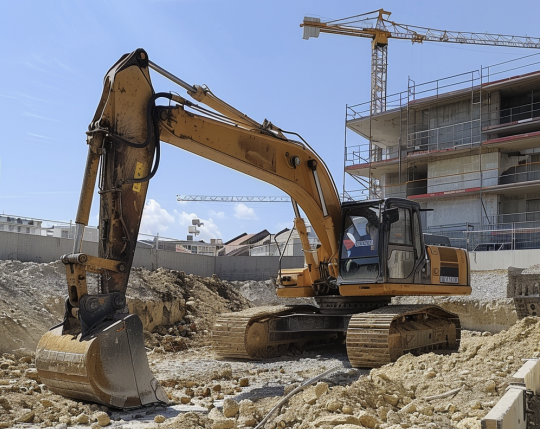In the dynamic world of construction, equipment choices can significantly impact the overall efficiency and cost-effectiveness of projects. Among the myriad of machinery options available, excavators stand out as a critical asset for various tasks such as digging, material handling, and demolition. When it comes to procuring an excavator, buyers often face the dilemma of choosing between new and second-hand models. This guide delves into the compelling reasons why second-hand excavators are an excellent choice over new ones, offering valuable insights to help you make an informed decision.
Section 1:Affordability and Cost Savings
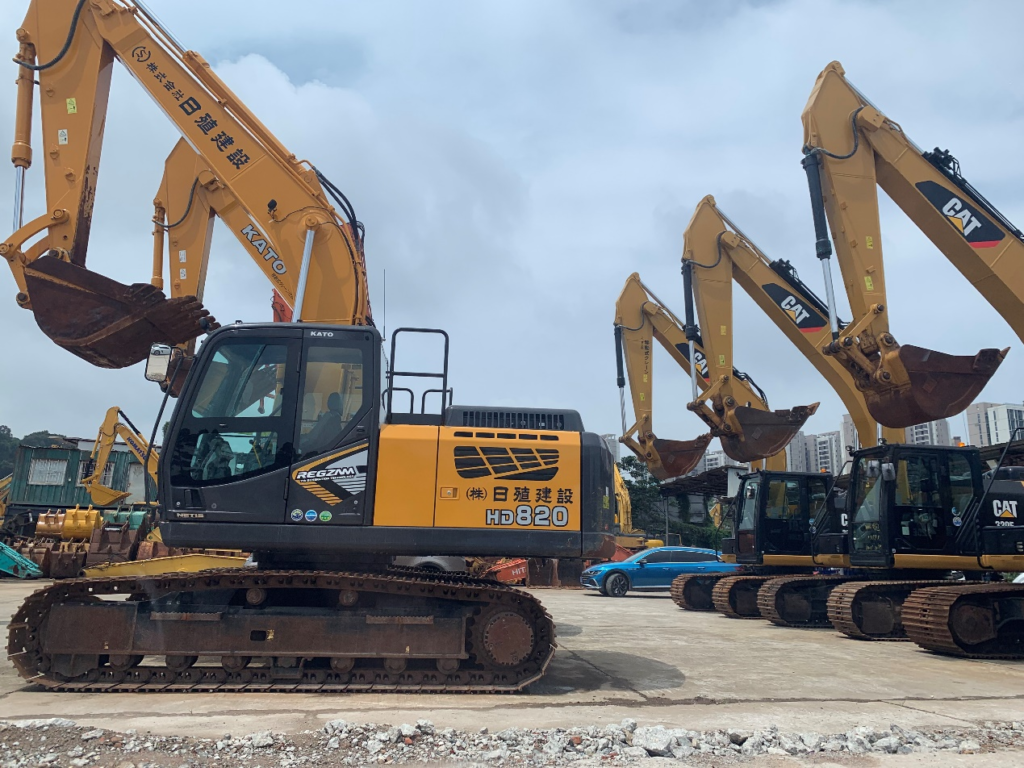
Lower Purchase Price
One of the most immediate and tangible benefits of opting for second-hand excavators is the significantly lower purchase price compared to brand-new models. New excavators come with a hefty price tag, which can be a substantial financial burden, especially for small to medium-sized construction firms. In contrast, second-hand excavators are available at a fraction of the cost, allowing companies to allocate their budget more efficiently.
Depreciation Advantages
New excavators experience rapid depreciation in their initial years of use, losing a significant portion of their value almost immediately after purchase. By choosing second-hand machinery, buyers avoid this steep depreciation curve. Second-hand excavators have already undergone the majority of their depreciation, ensuring that the investment retains its value better over time.
Section 2: Proven Reliability and Performance

Established Track Records
Second-hand excavators from reputable brands like Caterpillar, Komatsu, Hitachi, and Volvo have well-established track records of performance and durability. These brands are renowned for their robust engineering and long-lasting machinery, making their second-hand models a reliable choice. Buyers can benefit from the proven reliability of these machines, which have demonstrated their capabilities in various construction environments.
User Reviews and Feedback
One advantage of purchasing second-hand machinery is the wealth of user reviews and feedback available. Potential buyers can research and gather information on the performance, maintenance needs, and common issues of specific models. This information is invaluable in making an informed decision and selecting an excavator that best suits their needs.
Section 3: Availability and Variety
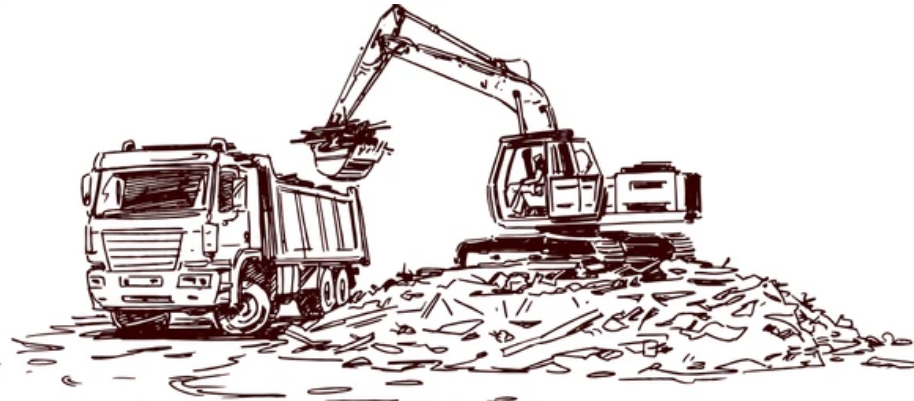
Wide Range of Options
The second-hand market offers a wide range of excavator models, sizes, and configurations. This variety ensures that buyers can find the exact machine that meets their project requirements. Whether it’s a compact excavator for urban construction or a larger model for extensive earthmoving tasks, the second-hand market caters to diverse needs.
Quick Availability
Unlike new excavators, which may have long lead times for manufacturing and delivery, second-hand excavators are readily available. This quick availability can be crucial for construction projects with tight timelines, allowing companies to commence work without unnecessary delays.
Section 4: Sustainability and Environmental Benefits
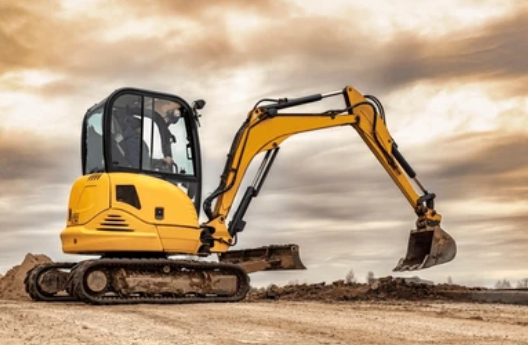
Reduced Environmental Impact
Opting for second-hand excavators contributes to environmental sustainability. The production of new machinery consumes significant resources and energy, resulting in a substantial carbon footprint. By reusing existing machinery, buyers help reduce the demand for new manufacturing and minimize their environmental impact.
Waste Reduction
Purchasing second-hand equipment also helps reduce waste. Extending the lifecycle of excavators through reuse prevents them from ending up in landfills prematurely. This practice aligns with the principles of a circular economy, promoting resource efficiency and waste reduction.
Section 5: Key Considerations When Buying Second-Hand Excavators
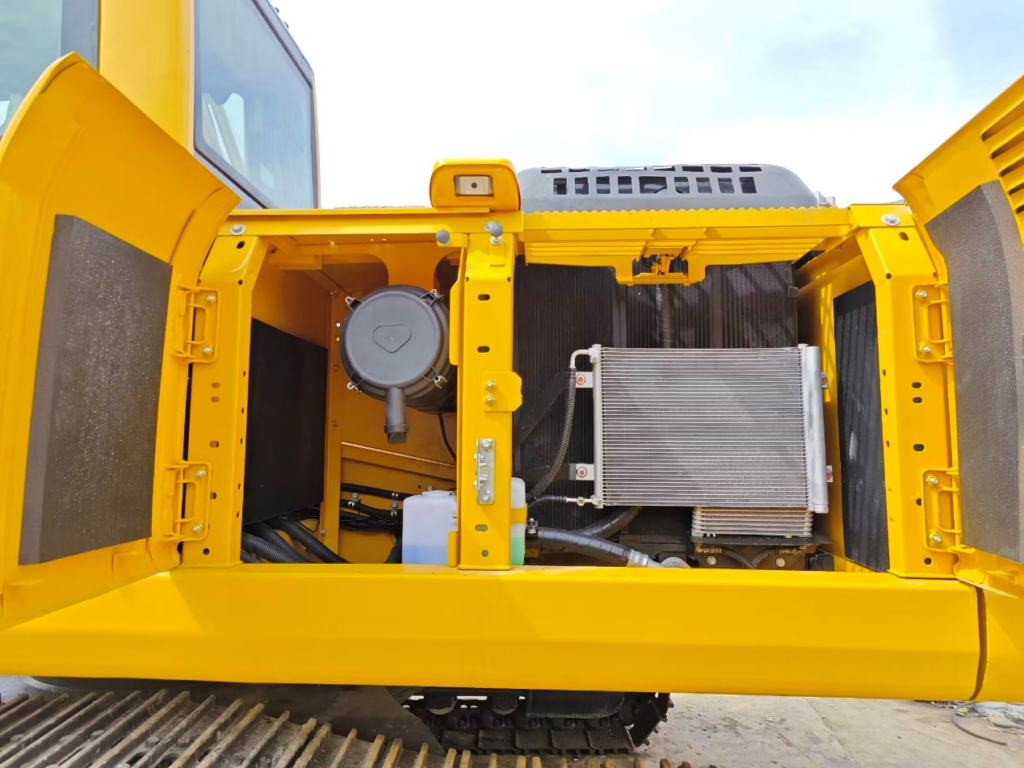
Thorough Inspection
Before purchasing a second-hand excavator, it’s essential to conduct a thorough inspection. Key aspects to examine include the machine’s physical condition, engine performance, hydraulic systems, and undercarriage wear. Hiring a professional inspector or technician can provide a comprehensive assessment and ensure the excavator is in good working condition.
Service History and Maintenance Records
A detailed service history and maintenance records are crucial when evaluating a second-hand excavator. These records offer insights into how well the machine has been maintained and any repairs or replacements that have been carried out. Well-documented maintenance history indicates a well-cared-for machine with a higher likelihood of reliable performance.
Usage Hours
The number of hours an excavator has been used is another important consideration. While lower usage hours generally indicate less wear and tear, it’s also essential to consider the type of work the machine has been used for. An excavator with moderate hours but used for light tasks may be in better condition than one with fewer hours but subjected to heavy-duty operations.
Section 6: The Buying Process for Second-Hand Excavators
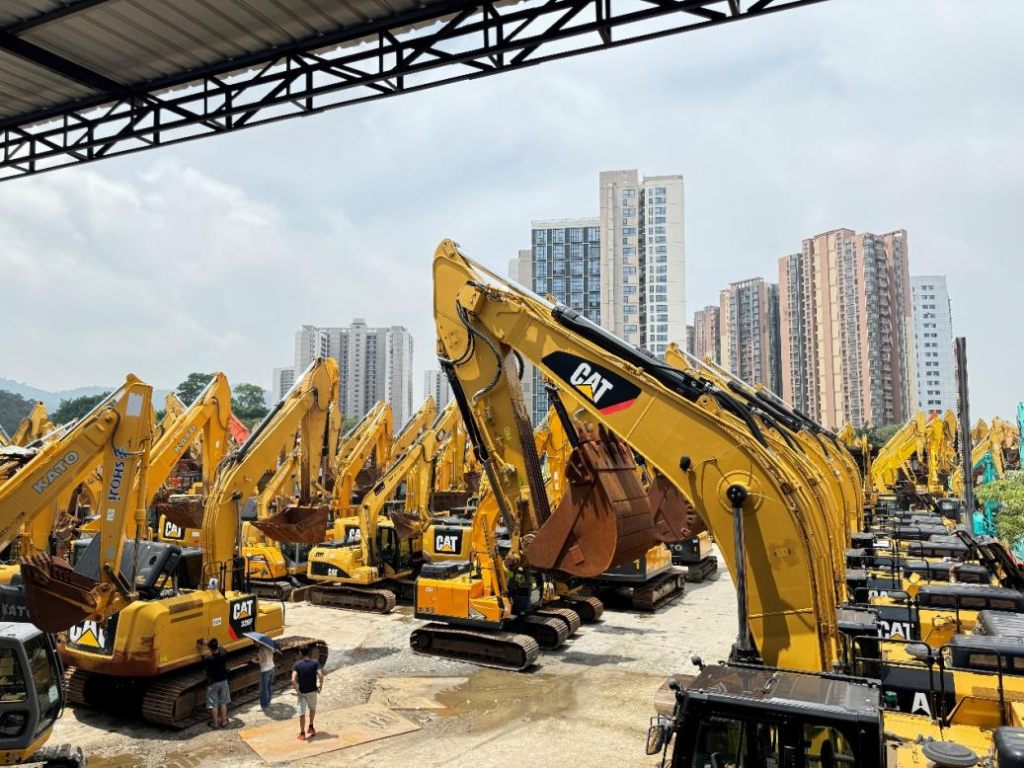
Finding Reputable Dealers
To ensure a successful purchase, it’s crucial to find reputable dealers or suppliers specializing in second-hand excavators. Look for dealers with positive reviews, transparent business practices, and a track record of satisfied customers. Reputable dealers often offer warranties or guarantees on their machinery, providing additional peace of mind.
Negotiating the Price
Negotiating the price is a standard part of purchasing second-hand machinery. Conduct market research to understand the fair value of the specific model you’re interested in. Use this information to negotiate a reasonable price with the dealer, ensuring you get the best deal possible.
Finalizing the Purchase
Once you’ve selected an excavator and agreed on the price, the final steps involve completing the necessary paperwork, arranging for payment, and organizing transportation. Ensure that all documentation, such as ownership transfer and export/import permits (if applicable), is in order to avoid any legal complications.
Section 7: Common Myths and Misconceptions
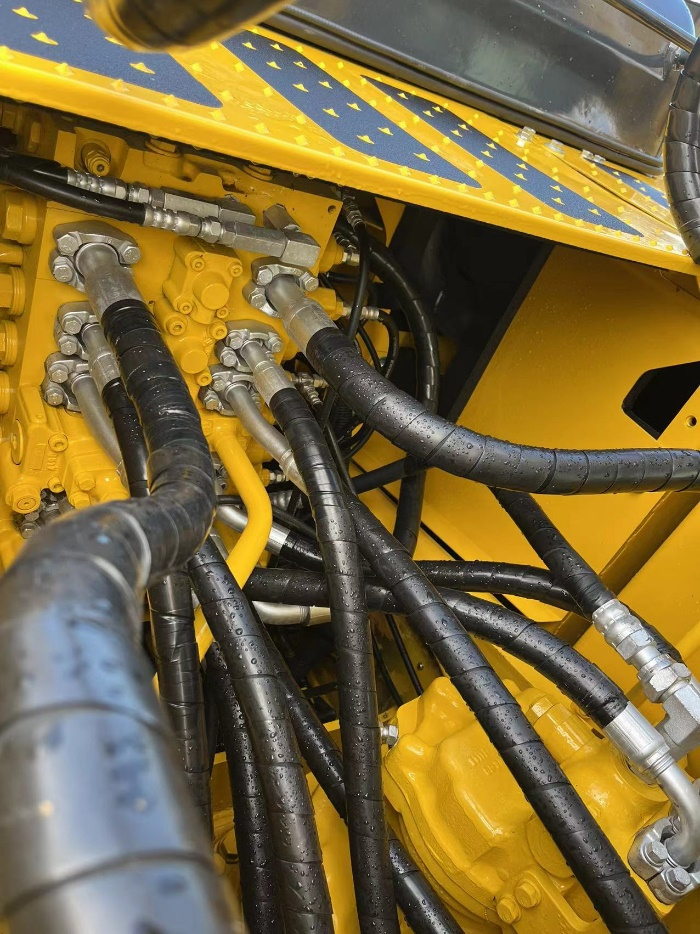
Myth: Second-Hand Means Poor Quality
A common misconception is that second-hand excavators are of inferior quality. In reality, many second-hand machines are in excellent condition, having been well-maintained and serviced regularly. Reputable dealers ensure that their inventory meets high standards of quality and performance.
Myth: Lack of Modern Features
Some buyers believe that second-hand excavators lack modern features and technology. While newer models may have advanced features, many second-hand excavators are equipped with sufficient technology to handle various tasks efficiently. Additionally, some older models can be retrofitted with modern attachments and technology.
Section 8: Maintenance Tips for Second-Hand Excavators
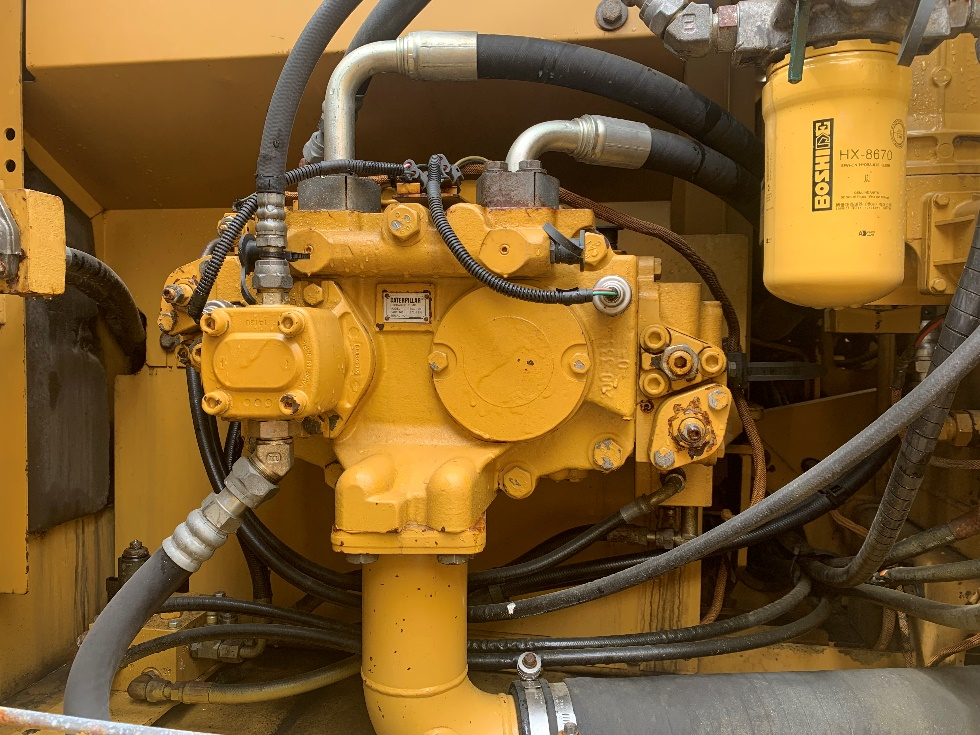
Regular Inspections
Conduct regular inspections to identify any potential issues before they escalate. Pay close attention to critical components such as the engine, hydraulic systems, and undercarriage. Early detection of problems can prevent costly repairs and downtime.
Adherence to Maintenance Schedules
Follow the manufacturer’s recommended maintenance schedule for oil changes, filter replacements, and other routine tasks. Adhering to these schedules ensures the excavator operates smoothly and prolongs its lifespan.
Proper Storage
When not in use, store the excavator in a covered or sheltered area to protect it from harsh weather conditions. Proper storage helps prevent rust and other damage, maintaining the machine’s condition.
Conclusion
Choosing second-hand excavators over new ones offers a range of compelling benefits, including substantial cost savings, proven reliability, quick availability, and environmental advantages. By conducting thorough inspections, performing diligent research, and partnering with reputable dealers, you can acquire high-quality machinery that perfectly suits your project needs. Opting for second-hand excavators is a smart, sustainable, and financially prudent decision that supports both your business goals and environmental responsibilities.

